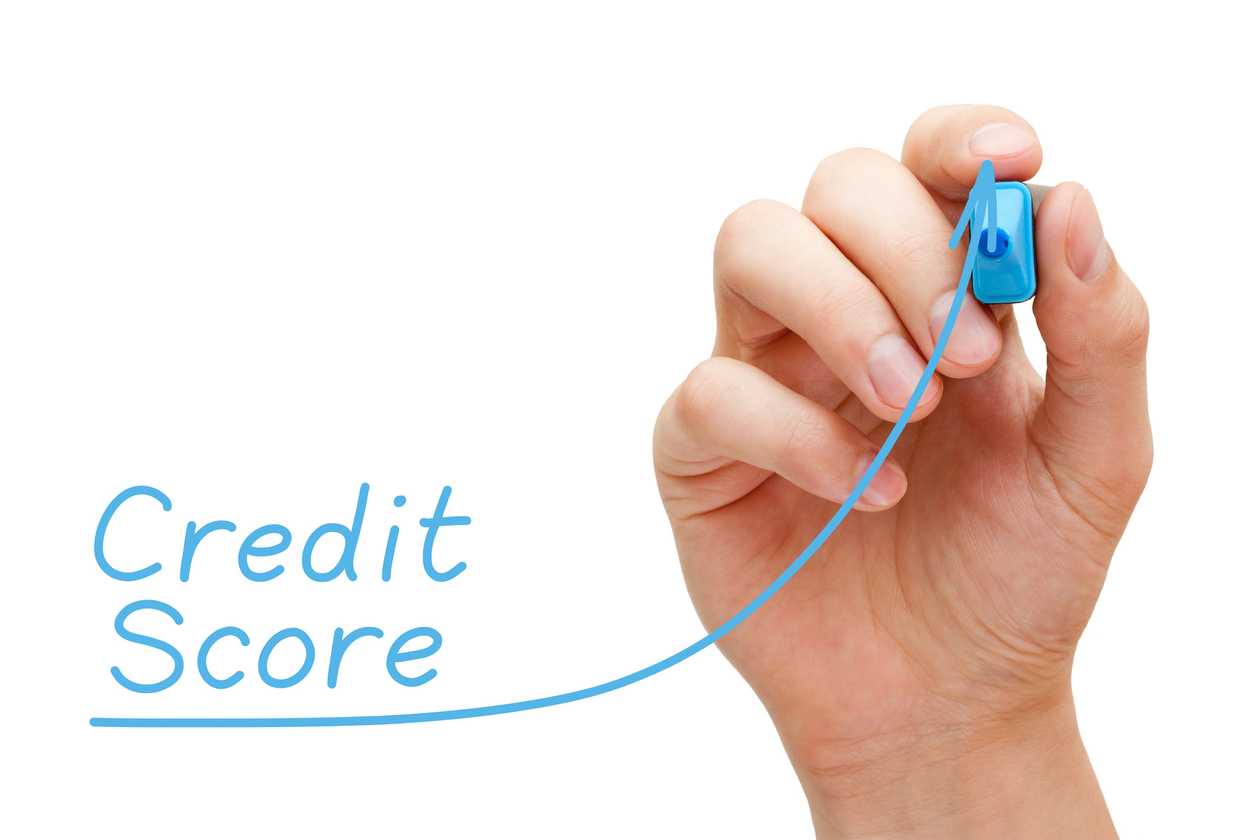
Credit scores play a significant role in our financial lives. They can determine whether you get approved for loans, housing, insurance, or even a job. If you have a low credit score, you might face higher interest rates or larger security deposits. So, how can you improve your credit score fast? Let’s explore some effective steps to boost your credit and qualify for the best deals.
15 Steps to Improve Your Credit Scores
Improving your credit score may seem like a daunting task, but it’s actually quite simple. Follow these steps to increase your credit score before your next application.
1. Dispute items on your credit report
Take advantage of your right to obtain a free credit report from Experian, Equifax, and TransUnion through AnnualCreditReport.com. Check your reports for errors and negative entries. If you find any, dispute them. Under federal law, creditors have a limited time to validate your debt to the credit bureau, or it must be removed.
2. Make all payments on time
Your payment history has the most significant impact on your credit score, accounting for 35% of it. To ensure on-time payments, set up automatic payments for at least the minimum amount due on all your debts. This way, you’ll avoid late fees, penalty APRs, and negative marks on your credit report. Over time, your positive payment history will continue to improve your credit score.
3. Avoid unnecessary credit inquiries
Every time you apply for credit, your credit score may temporarily drop by three to five points. To prevent this from affecting your score and potentially causing approval denials, be cautious about making too many credit inquiries.
4. Apply for a new credit card
Opening a new credit card can actually increase your credit score. It lowers your credit utilization ratio by increasing your overall credit limit. For example, if you owe $5,000 and have a $10,000 credit limit, you have a 50% utilization ratio. Adding a new card with a $10,000 limit increases your overall credit limit to $20,000 and reduces your utilization ratio to 25%. Aim to keep your utilization ratio below 30%, as it accounts for 30% of your credit score.
5. Increase your credit card limit
If you’ve been using your credit responsibly, your bank may approve you for a credit limit increase. This will lower your utilization ratio and potentially improve your credit score. However, be mindful of whether the increase triggers a hard or soft inquiry, as hard inquiries can temporarily impact your score.
6. Pay down your credit card balances
Contrary to popular belief, carrying a balance does not improve your credit score. Instead, focus on paying down your credit card balances. This reduces your credit utilization and can significantly boost your credit score. Aim to keep your total utilization of available credit below 30%. The more you can reduce your balances, the better.
7. Consolidate credit card debt with a term loan
Consolidation loans can help reduce your credit utilization ratio and improve your credit score. By paying off your credit card balances with a consolidation loan, you can achieve a utilization ratio of 0%. Keep your credit cards open after paying them off to maintain a low utilization ratio and maintain a positive payment history.
8. Become an authorized user
Many credit card companies allow cardholders to add authorized users to their accounts. Being added as an authorized user can positively impact your credit score if the card has a long history of responsible use and low credit utilization. However, be cautious about being added to a card with a history of late payments or high utilization, as it could negatively affect your credit.
9. Keep your oldest accounts open
The average age of your accounts influences 15% of your credit score. To capitalize on this factor, keep your oldest accounts open. Closing newer accounts can increase your average age of accounts and potentially boost your credit score.
10. Open a self-lender loan
A self-lender loan is a unique way to build credit without borrowing money. By signing up for a self-lender loan, you make on-time payments each month to work toward a deposit goal. These loan payments are reported to credit bureaus, gradually improving your credit score. Once you complete the payments, you’ll receive a check or direct deposit for the deposited amount.
11. Apply for a secured loan
Secured loans are easier to obtain than personal loans because they are backed by collateral, such as CDs or investments. When approved for a secured loan, you’ll receive a lump sum of cash. Making regular payments on time will demonstrate responsible credit behavior and help improve your credit score.
12. Sign up for Experian Boost
Experian Boost recognizes regular on-time payments for rent, subscriptions, cellphones, and more. By opting for Experian Boost, you can have these payments included in your credit history, positively impacting your credit score.
13. Have rent payments reported to credit bureaus
While mortgage payments are typically reported to credit bureaus, rent payments often aren’t. However, some landlords offer this service for free or a small fee. Alternatively, third-party companies can report your rent payments to the credit bureaus. By having rent payments on your credit report, you can strengthen your credit score.
14. Switch to an all-cash budget
Switching to an all-cash budget can help you avoid accumulating more debt and allow you to allocate extra cash toward paying down balances. This reduces your credit utilization ratio and improves your credit score. Additionally, a smaller balance means less interest charged by credit card issuers, giving you more funds to pay off debt.
15. Build credit through a debit card
While traditional debit card usage doesn’t directly build credit, some FinTech banks offer debit cards that can help improve your credit score. Extra Debit Card, for example, reports your purchases to the credit bureaus, contributing to your credit history. Additionally, Extra offers rewards and cashback incentives for using their debit card responsibly.
Why does a good credit score matter?
A good credit score is essential in today’s economy. It not only determines your ability to get approved for loans and credit cards but also affects your insurance rates, job applications, and more. Here are some reasons why a good credit score matters:
- Getting approved for credit: Many loan programs and credit cards have minimum credit score requirements for approval.
- Higher interest rates and fees: Lenders charge higher interest rates and fees to compensate for the perceived risk associated with lower credit scores.
- Larger security deposits: Landlords, cell-phone companies, utilities, and other service providers may require larger security deposits from individuals with poor credit.
- Renting a home: A low credit score or negative marks on your credit report can disqualify your application for a rental home, even if your credit score meets the minimum requirement.
- Insurance premiums: Some insurance companies charge higher premiums to customers with bad credit, affecting various insurance types.
- Job applications: Certain job categories, professional licenses, and security clearances require good credit. A low credit score can hinder your chances of getting a job in these fields.
How long does it take to rebuild a credit score?
The time it takes to rebuild your credit score depends on various factors, such as your starting score, current score, and the reasons behind the low score. Generally, the higher your initial score, the longer it may take to fully recover. Here are some examples:
- Missed payment: A late payment can stay on your credit report for up to seven years. However, if you make all other payments on time, your credit score should recover within about 18 months.
- Maxing out a credit card: Your credit utilization ratio can change rapidly, and its impact on your credit score can improve shortly after paying off your balance or reducing it substantially.
- Filing for bankruptcy: Bankruptcy has a severe impact on credit scores, staying on your report for seven to ten years. It takes time to rebuild your credit score and demonstrate responsible financial behavior.
Conclusion
Having a good credit score is crucial for accessing the best rates and terms on loans and credit cards. It also opens up opportunities in various areas of life, including employment and insurance. By following these 15 steps and being mindful of your spending habits, you can improve your credit score quickly. Even if you can only implement one tip at a time, each step brings you closer to achieving a higher credit score.
FAQs
How can I raise my credit score in 30 days?
To raise your credit score quickly within 30 days, follow the steps mentioned in this article. Tips include disputing negative information on your credit report, paying down credit card debt, and signing up for Experian Boost.
How do I get a 700 credit score in two months?
To achieve a 700 credit score within two months, take focused action. Start by disputing errors and negative marks on your credit report. Make all payments on time and avoid applying for new credit. Lower your credit card balances by paying them off or getting a consolidation loan. Finally, keep old credit cards open after paying them off.
What is the number one way to improve your credit score?
The most effective way to improve your credit score is by reducing your credit utilization. Paying down credit card balances, increasing credit limits, or consolidating debt can significantly impact your credit utilization ratio and improve your score.
How do I get a 720 credit score in six months?
To improve your credit score to 720 within six months, follow these steps: review your credit report for errors, make all payments on time, lower your credit card balances, and become an authorized user on an account with a positive credit history.

